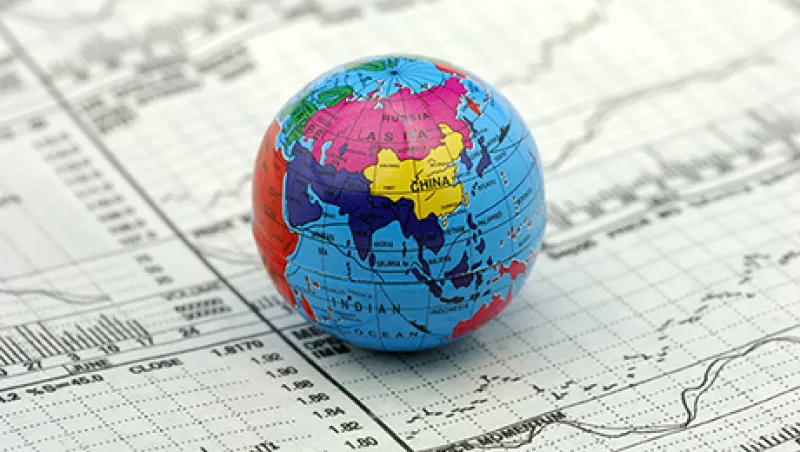It has long been conventional wisdom that global trade is a net positive. The data bear this out. But that notion is increasingly being called into question, as any observer of the U.S. presidential election or the Brexit vote can attest. An ever more populist electorate — on both ends of the political divide — has grown weary of jobs lost to the forces of globalization, even as net job growth has benefited from increased international trade. As some of these jobs have vanished — with no new occupations materializing for those who held them — there is a sense that the dynamism of “creative destruction,” which is believed to create more jobs than it destroys, has been replaced by permanent destruction.
The rapid rise of China’s export economy since the 1990s has displaced millions of workers in the developed world, and those workers are taking far longer to find employment than economic theory would lead us to expect. When these displaced workers do find employment, their wages are often reduced, adding to growing worker frustration. A study led by economist David Autor of MIT finds that workers in developed countries have suffered much more from the rise of China than economists’ models show. Autor and his colleagues conclude that sudden and significant exposure to foreign competition can dampen wages and employment for a decade or more. Although we know that global trade creates winners and losers, conventional wisdom asserts that the global economy as a whole benefits from trade, as do individual economies that have become more open. As social scientist Francis Fukuyama points out, however, trade liberalization, while boosting aggregate income, has had adverse distributional consequences. In other words, the negative impact has been felt inconsistently, as the benefits of trade disproportionately advantage the well-off at the expense of average workers. The adverse distributional consequences have become even more palpable in recent decades, with the apparent losers in the globalization race taking longer to get back on their feet than did their counterparts a generation ago.
The impact of fewer jobs for the displaced, combined with wealth being concentrated in fewer hands, has created a populist backlash across much of the Western world. The U.K.’s Brexit referendum is a prime example. Both the center-right Conservative Party and the center-left Labour Party were split by the question of whether to remain in the European Union. Some viewed the vote as an opportunity to push back against an onslaught of globalization foisted upon them by the elites. As former U.S. Treasury secretary Lawrence Summers recently put it, “The willingness of people to be intimidated by experts into supporting cosmopolitan outcomes appears for the moment to have been exhausted.”
In the U.S., Republican presidential nominee Donald Trump has proposed pulling out of free-trade agreements like the 1994 North American Free Trade Agreement (NAFTA) and abandoning the proposed Trans-Pacific Partnership (TPP), unless they are renegotiated to safeguard U.S. workers. He also proposes designating China as a currency manipulator and imposing countervailing duties on Chinese goods. Meanwhile, Democratic nominee Hillary Clinton has reversed her long-time support for free trade broadly and TPP in particular — which she promoted while secretary of State — after a primary challenge from ultrapopulist Senator Bernie Sanders. The shift toward protectionism amid slow global economic growth and stagnant middle-class wages is both understandable and concerning. Do we risk traveling down a protectionist road, as we did at the dawn of the Great Depression? A return of protectionist tendencies, amid a myriad of global headwinds, risks decelerating growth even further, calcifying labor and product markets while pushing a frail, highly levered global economy closer to the brink. What are the investment implications of such a scenario?
All else being equal, a slow and partial reversal of trade globalization would seem to argue for a lower-for-longer global interest rate environment. Equities, especially large-cap multinationals, are unlikely to flourish against such a backdrop. Anything resembling a full-blown trade war, however, would probably devastate valuations of risky assets. Indeed, there would likely be a great deal of economic disruption in the short term in the misguided hope of a long-term revival of domestic labor markets. More troubling is the notion that the pushback against globalization could be fundamentally flawed, since job losses may be impacted more heavily by the rise of mechanization and digitization than by competition from imports.
With a busy global electoral calendar over the next 13 months, including presidential elections in the U.S. and France, a constitutional referendum in Italy and a general election in Germany, populism could gather further momentum. Even if the forces of populism are not strong enough to fully win the day, as they did in the U.K. in June, they have already seriously altered the debate and will likely continue to do so until global economic growth is revived. At present, better days seem a distant prospect. But for those leaders who would like to preserve globalization in both the public and private spheres, it behooves them to think about globalization’s adverse impacts in a more thoughtful way. It’s becoming clear that ignoring the problem is no longer a viable political option.
Erik Weisman is chief economist and a fixed-income portfolio manager for MFS Investment Management in Boston.
Get more on macro.






